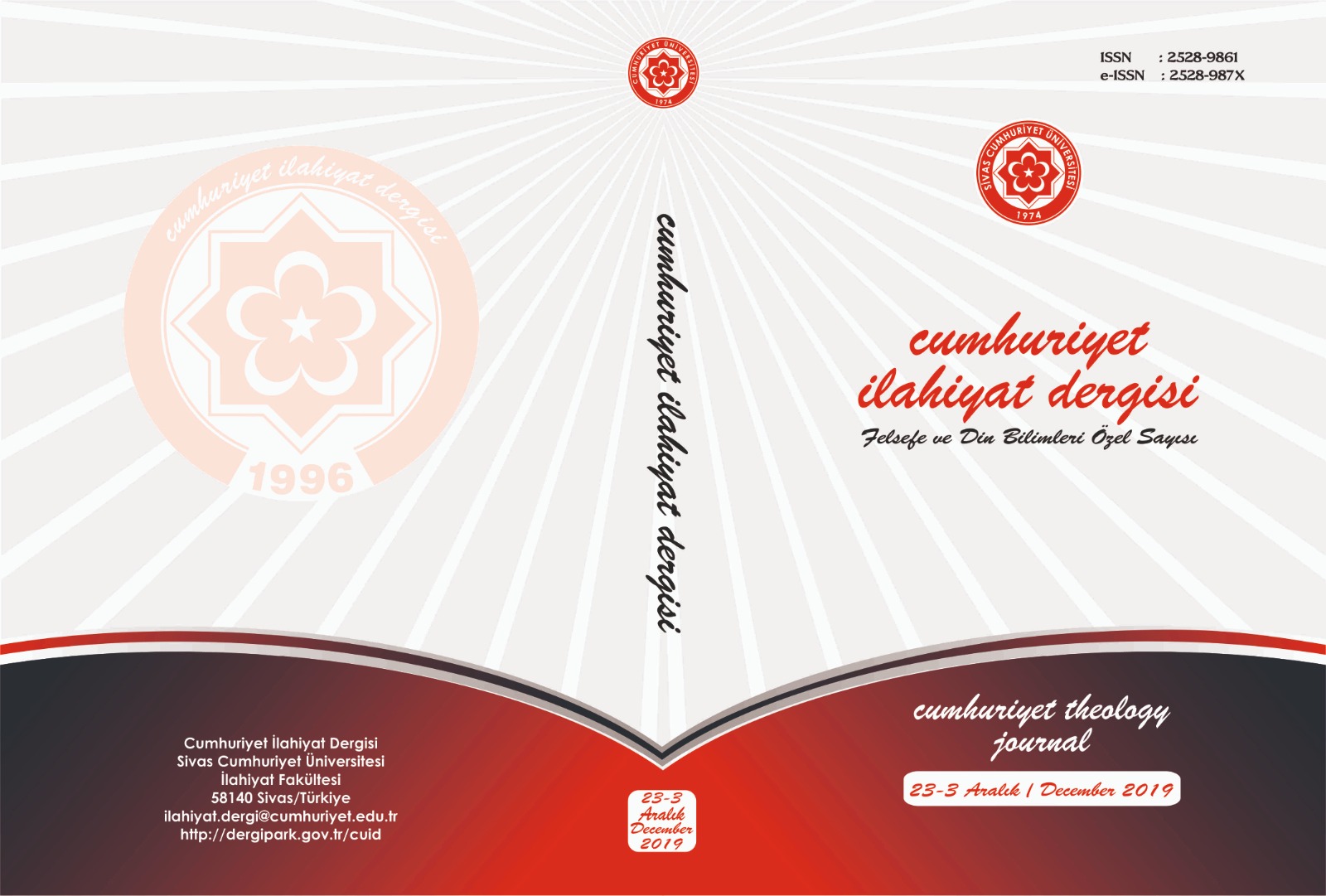Tanrı-Din ve Siyaset İlişkisinin Thomas Hobbes’un Leviathan ve De Cive Kitapları Işığında İncelenmesi
The Analysis of the Relationship between God, Religion and Politics in Thomas Hobbes’s Leviathan and De Cive
Author(s): Pervin YiğitSubject(s): Philosophy, Law, Constitution, Jurisprudence, Political Theory, Sociology of Religion
Published by: Cumhuriyet Üniversitesi İlahyat Fakültesi
Keywords: Thomas Hobbes; Philosophy of Religion; Sociology of Religion; Moral Laws; Natural Laws;
Summary/Abstract: Thomas Hobbes (1588-1679) was a significant political theorist who could be regarded as the founder of social contract theories. Hobbes’s philosophy is worthy of attention in the history of political thought due to his definition of natural state, the reasons of the formation of civil society, authorization and political obligation. Specifically, he focused on the rationalization of political obligation to the sovereign in order to strengthen monarchy in the given era. Meanwhile, he could not exclude the concept of God due to the conditions of the century. Therefore, he preferred integrating the concept of God into his political philosophy by means of moral laws and moral obedience after he had introduced the idea of social contract theory. Furthermore, in contrast to previous thinkers, he gave God a secondary role in the maintenance of political and social order. Excluding the idea of God and the obedience of unwritten laws gave rise to discussion about Hobbes’s rejection of the existence of God although he did not accept these accusations. In this paper it is argued that, Hobbes was an atheist and he used religion only as a political instrument for the sake of the social order. In other words, this paper clarifies the idea that Hobbes used religion and the fear of God as a tool in order to force individuals to obey written laws under a sovereign. In order to indicate the rightness of this argument, his main ideas stated in De Cive and Leviathan are analysed and the place of religion and God in his theory is examined in this paper.
Journal: Cumhuriyet İlahiyat Dergisi
- Issue Year: 23/2019
- Issue No: 3
- Page Range: 1389-1401
- Page Count: 13
- Language: English

